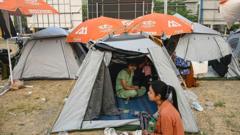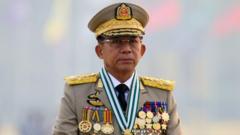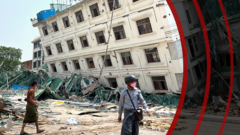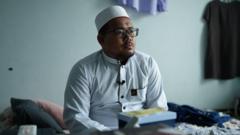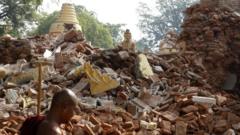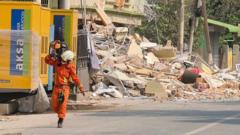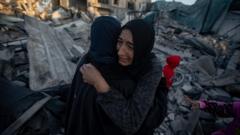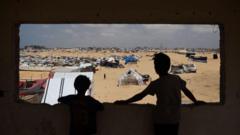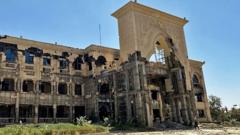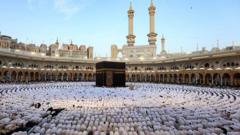As Khartoum recovers from its devastating recent conflict, residents are celebrating newfound freedom while contending with the challenges of rebuilding their war-torn city, raising questions about Sudan's future.
Khartoum's Fragile Peace: Amidst Ruins, Hope and Uncertainty Emerge
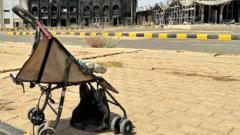
Khartoum's Fragile Peace: Amidst Ruins, Hope and Uncertainty Emerge
The aftermath of Khartoum's battle reveals profound destruction and a community grappling with loss yet hopeful for a revitalized future.
The battered heart of Khartoum is a haunting reminder of the intense urban conflict that has engulfed the Sudanese capital. Just days have passed since Sudan's army took control from the paramilitary Rapid Support Forces (RSF), concluding a six-month offensive that marked a significant moment in the two-year civil war. The city once thrived as the seat of government and commerce, now lies in ruins, devastated by violence and loss.
Although many residents spill into the streets to commemorate the Eid holiday, tensions linger as questions about the future of the conflict remain unanswered. The drive to key locations, such as the presidential palace—once seized by the RSF—reveals the stark reality of war. The palace, filled with debris and signs of looting, stands as a critical symbol of both military power and the tremendous costs associated with victory.
Celebrations among soldiers at the palace highlight a mix of pride and sorrow; joy bursts forth as feasts are delivered to commemorate Eid, yet the devastation visible throughout central Khartoum presents a stark contrast. Government ministries, businesses, and essential infrastructure have been reduced to ash and ruin, with the international airport serving as a poignant symbol of the chaos.
Every corner bears the scars of destruction, including a cathedral that remains largely intact but bears witness to the horrors endured, and streets littered with remnants of human tragedy—a stark reminder of the war’s impact. Amid the continued fallout, a fragile sense of hope is beginning to rise among residents.
Interviews with locals reflect a blend of emotions. Some celebrate their newfound freedom while grappling with the ongoing struggles of daily life during and after war. Individuals like pro-democracy activist Duaa Tariq express relief, yet also anxiety about the future and the risk of losing hard-won freedoms in what remains an unpredictable environment.
Residents are striving to piece together their lives amidst the ruins, with one elderly man proclaiming his optimism for rebuilding efforts. However, scars from trauma linger in the community, as families express concern over psychological impacts on children and the need for essential support.
In the wake of such a brutal civil conflict, many are praying for peace not just for Khartoum but for regions like Darfur, where humanitarian crises continue to unfold. As the city embraces liberation from RSF control, the path ahead is fraught with uncertainty about governance, civil rights, and the potential for recovery. The hopes of Khartoum's residents rest on what comes next in their long and arduous journey toward healing and stability.


